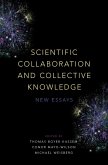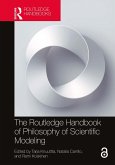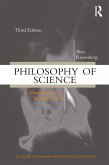Scientific Testimony concerns the roles of scientific testimony in science and society. The book develops a positive alternative to a tradition famously expressed by the slogan of the Royal Society Nullius in verba ("Take nobody's word for it"). This book argues that intra-scientific testimony--i.e., testimony between collaborating scientists--is not in conflict with the spirit of science or an add-on to scientific practice. On the contrary, intra-scientific testimony is a vital part of science. This is illustrated by articulating epistemic norms of intra-scientific testimony and arguing that they are vital to scientific methodology on a par with other scientific norms governing scientific observation and data analysis. The book also provides an account of public scientific testimony--i.e., scientific testimony to the lay population. This is done by integrating philosophical resources with empirical research on the science of science communication. For example, various misconceptions about science and folk epistemological biases are diagnosed as factors that contribute to science skepticism. This diagnosis provides the basis for developing novel norms for science communication that are sensitive to the psychological and social obstacles to laypersons' uptake of it. Finally, the volume discusses how public scientific testimony is best embedded in society and argues that it is critical for societies that pursue the ideals of deliberative democracy. Scientific Testimony draws on philosophy of science, social epistemology, and empirical research to provide a wide-ranging account of the roles of scientific testimony within scientific practice and within the wider society.
Dieser Download kann aus rechtlichen Gründen nur mit Rechnungsadresse in A, B, BG, CY, CZ, D, DK, EW, E, FIN, F, GR, HR, H, IRL, I, LT, L, LR, M, NL, PL, P, R, S, SLO, SK ausgeliefert werden.









